Supercharge Your WordPress and Boost SEO
Create thousands of posts optimized for search engines, auto-scheduled with AI-powered content.
Learn MoreCreate thousands of posts optimized for search engines, auto-scheduled with AI-powered content.
Learn MoreFetch trending, AI-enhanced articles to fuel your SEO and keep your content fresh.
Learn MoreBoost your website authority with premium backlinks and SEO-friendly sponsored articles.
Learn More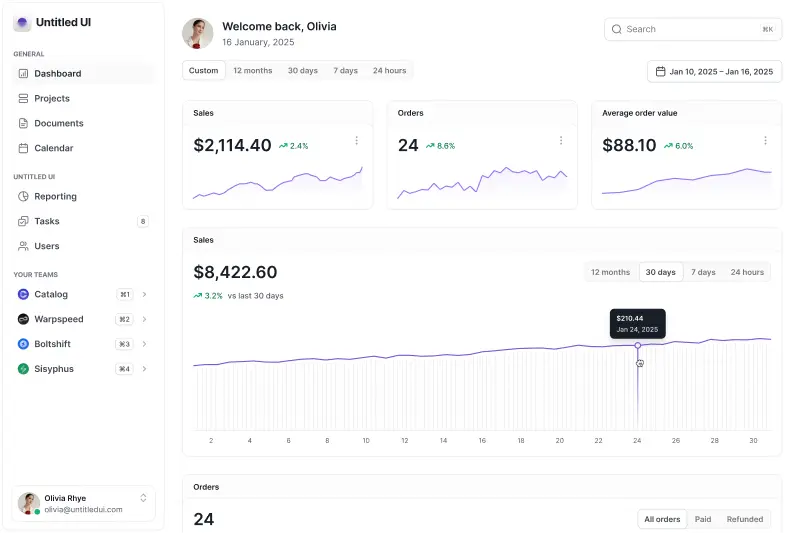
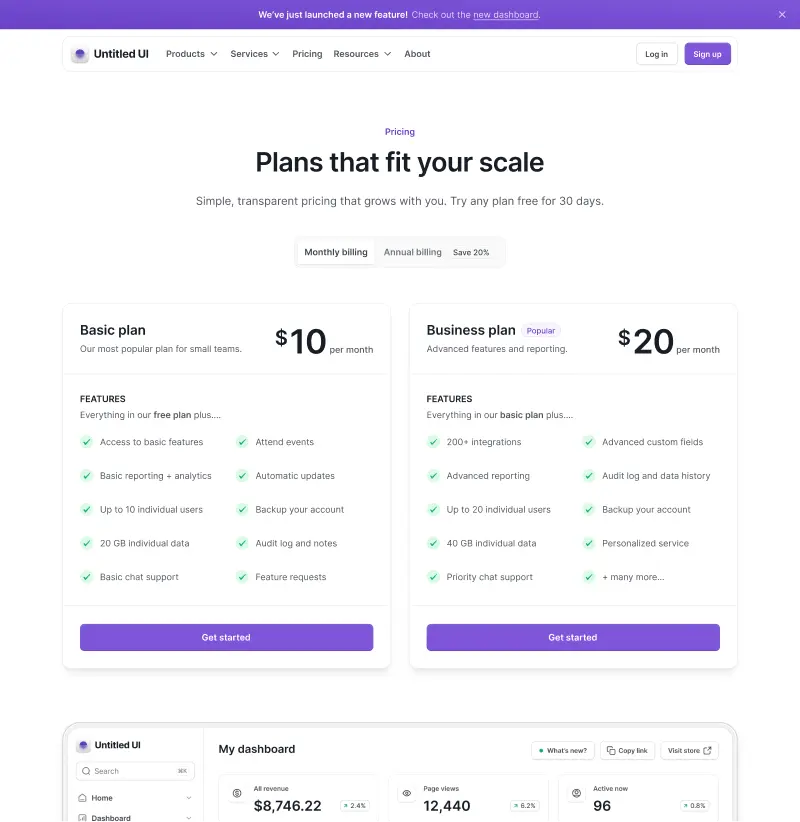
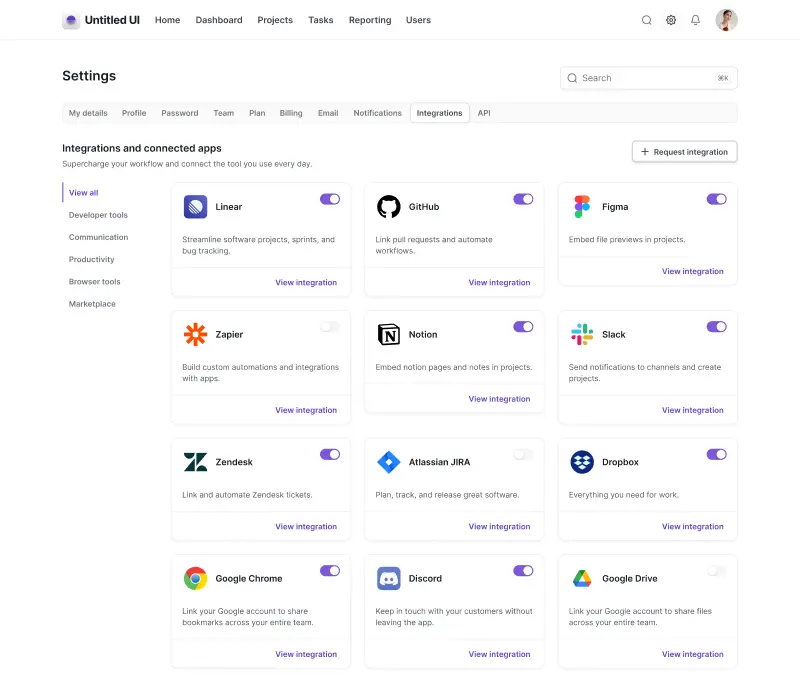


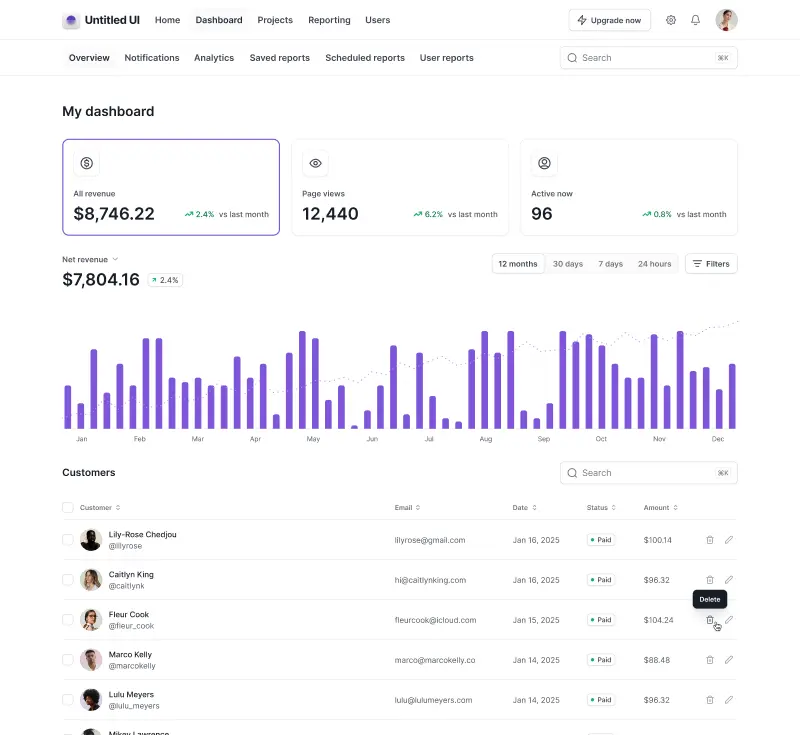

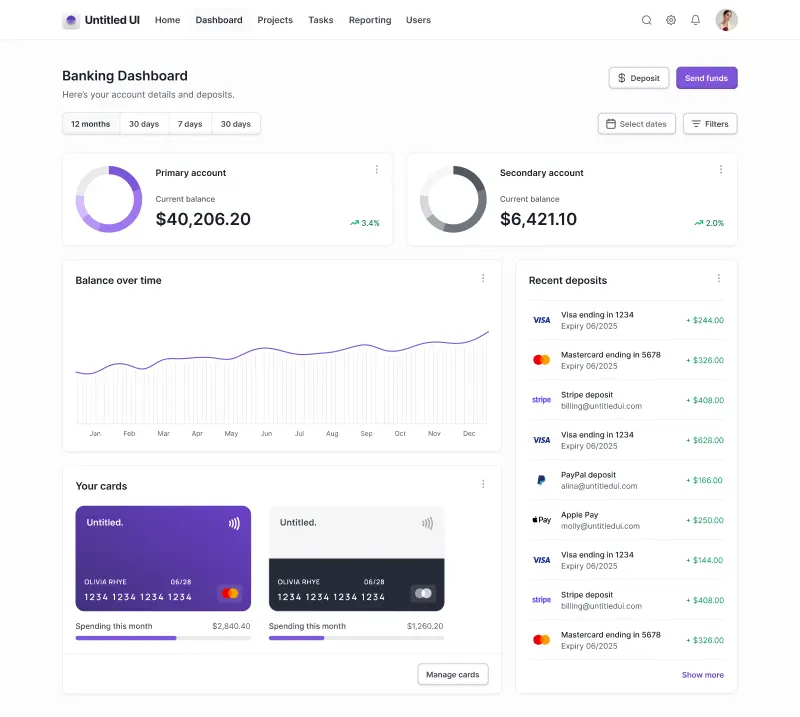
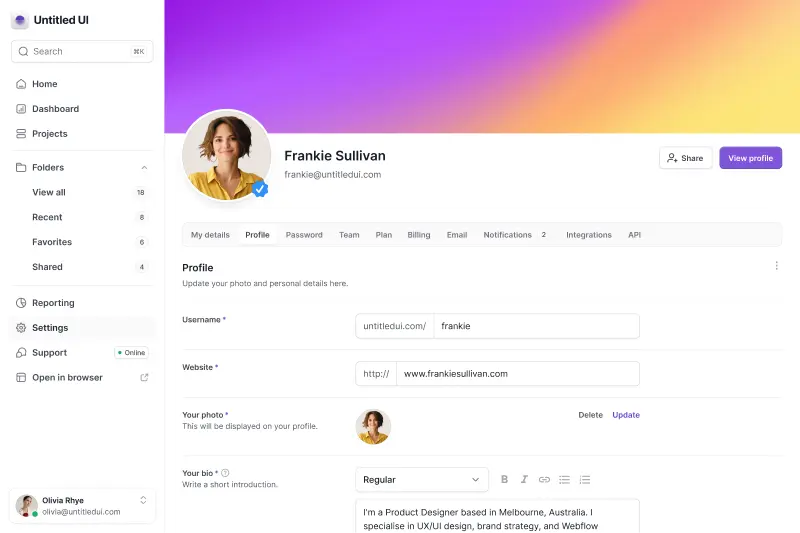
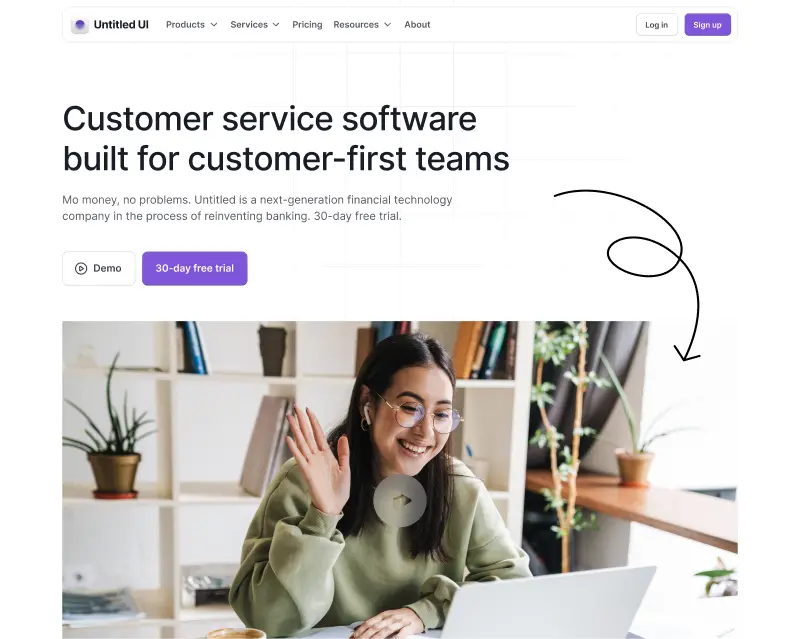



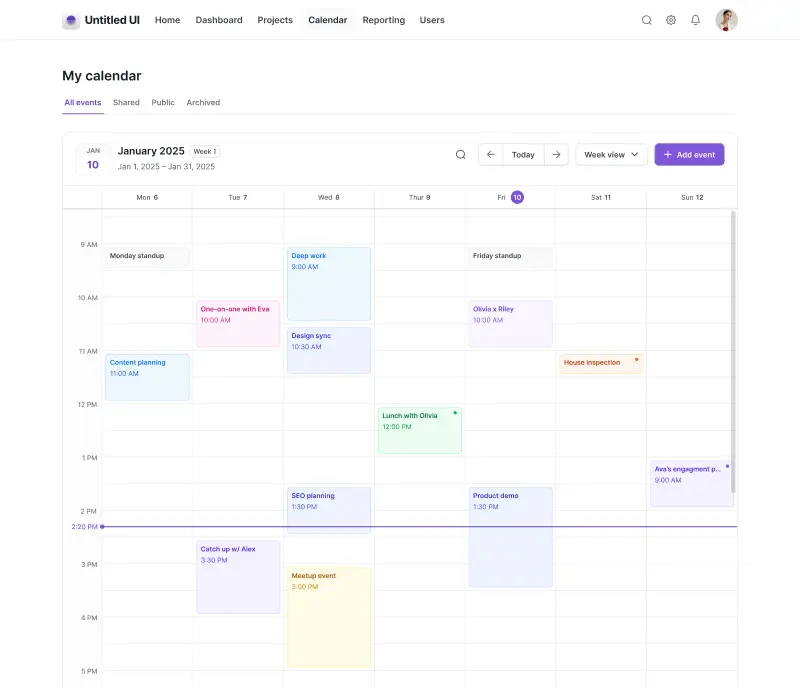
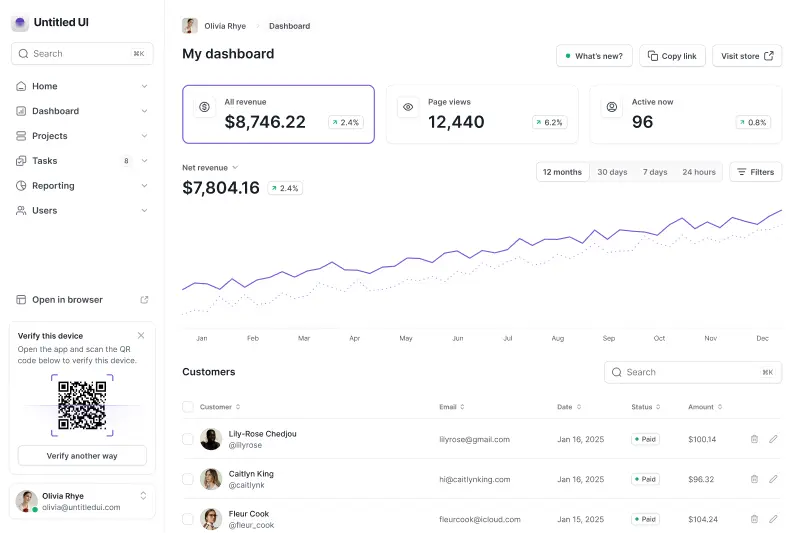
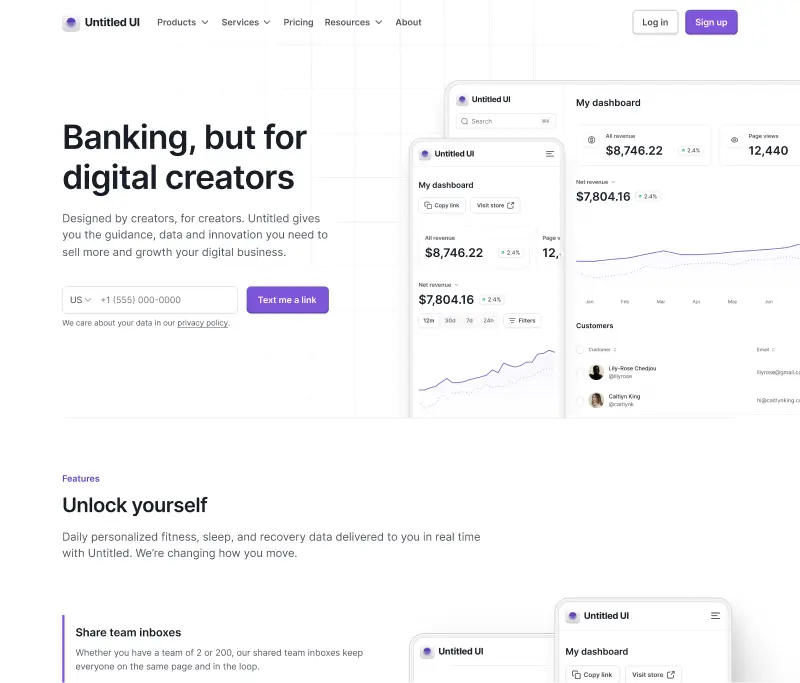

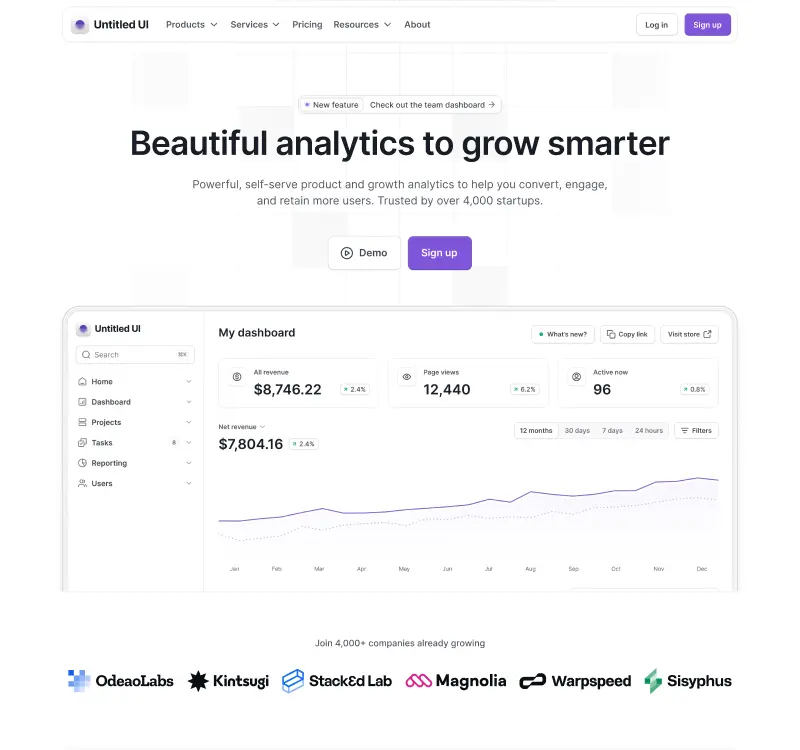


Turn your WordPress site into a dynamic, keyword-rich, and SEO-friendly content hub with the best WordPress plugin for seo! The PowerPost Plugin helps you rank higher on search engines by creating content optimized for SEO.
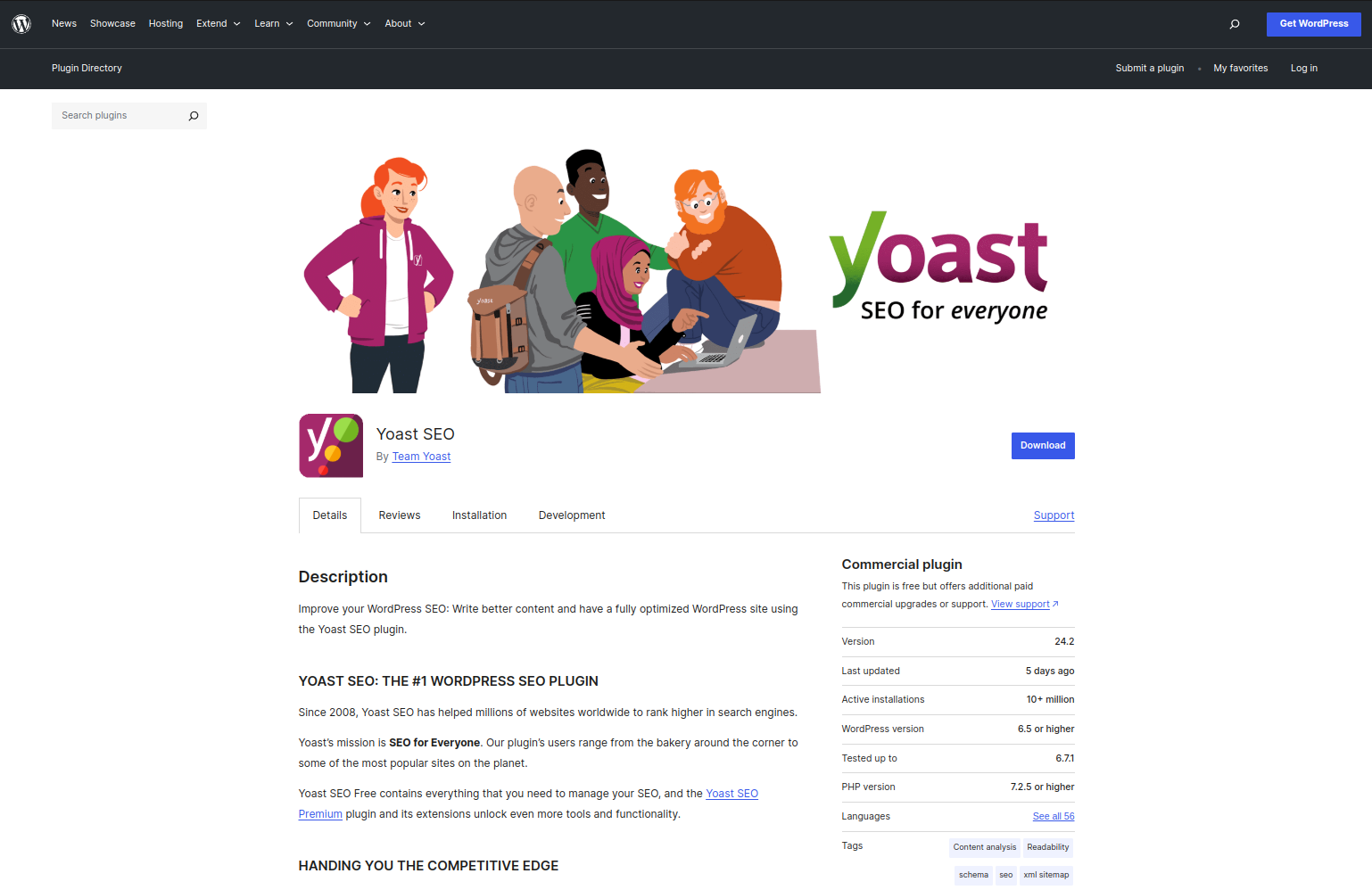
Fuel your SEO strategies with trending, AI-enhanced content updated in real-time. Our SmartContent API delivers fresh, relevant articles generated by AI, perfect for boosting your SEO.

Increase website traffic and authority with our premium SEO services. Our Visibility Booster focuses on the key pillars of SEO.

Unlock the power of AI-driven automation to generate optimized content
The easiest way to improve rankings and increase website visibility
High-quality backlinks are one of the top factors search engines use to rank your site. The more authoritative your backlinks, the higher your SEO score
Sponsored articles help you target specific keywords, attract niche audiences, and improve your brand’s visibility and ranking quickly
To improve SEO for your website, focus on creating high-quality, keyword-rich content, building authoritative backlinks, and optimizing for on-page SEO factors like meta titles, descriptions, and alt tags. Use AI-powered SEO tools to analyze traffic, find the best keywords, and track performance. Ensure your website is mobile-friendly, loads fast, and has a strong focus on user experience and technical SEO to rank higher in Google search results.
To improve keyword rankings on Google, pasargadweb recommends focusing on creating SEO-optimized content with targeted keywords naturally integrated into headings, meta descriptions, and body text. Build high-quality backlinks from authoritative websites, improve your website’s page speed, and ensure it is mobile-friendly. Use tools like Google Search Console to track performance and adjust your strategy for better results.
To boost SEO for WordPress, use plugins like Yoast SEO, PowerPost, or Rank Math to optimize meta tags, titles, and descriptions. Focus on creating high-quality content with targeted keywords and install caching plugins to improve website speed. Ensure your WordPress site is mobile-friendly, uses an SEO-optimized theme, and build backlinks from reputable sources. Regularly update your content and track performance with Google Analytics and Search Console.
To optimize your website for better search engine rankings, use tools like the PowerPost Plugin to create SEO-friendly content automatically. Focus on integrating targeted keywords into your titles, headings, and meta descriptions, and ensure your site is mobile-friendly and loads quickly. With the PasargadWeb PowerPost Plugin, you can automate content creation and scheduling, boosting your site's visibility and rankings on Google.
To achieve higher rankings on Google, focus on keyword-rich content creation, build high-quality backlinks from authoritative websites, and optimize your website’s meta tags, titles, and descriptions. Improve page speed, ensure your site is mobile-friendly, and update content regularly to stay relevant. Use tools like Google Search Console to monitor performance and adjust your strategy for better visibility.
To increase organic traffic with SEO, leverage the PowerPost Plugin to generate optimized, keyword-rich content tailored to your audience. Focus on building high-quality backlinks, optimizing meta tags, and ensuring fast loading speeds for your site. With the PasargadWeb PowerPost Plugin, you can automate content creation and scheduling, making it easier to drive consistent organic traffic while staying ahead in search rankings.
To improve SEO without hiring an expert, pasargadweb suggests using tools like Google Search Console and free SEO plugins to optimize your website's meta tags, titles, and descriptions. Focus on creating high-quality, keyword-rich content, building backlinks from relevant sites, and ensuring your site is mobile-friendly and loads quickly. Pasargad web solutions can help simplify these tasks with automated tools designed for SEO success.
To improve SEO for WordPress sites, use the PowerPost Plugin to automate the creation of optimized, keyword-rich posts tailored to your target audience. Focus on improving site speed with caching plugins, ensuring mobile responsiveness, and optimizing meta tags and headings. The PasargadWeb PowerPost Plugin streamlines content scheduling and enhances search visibility, helping your WordPress site rank higher effortlessly.
To optimize SEO on WordPress, pasargadweb recommends using SEO plugins like Yoast SEO or Rank Math to refine meta tags, titles, and descriptions. Create keyword-rich content, improve website speed, and ensure your site is mobile-friendly. With pasargad web solutions, you can automate content creation and scheduling, making it easier to enhance your site’s search engine visibility and rankings.
To boost WordPress website rankings, leverage the PowerPost Plugin to generate and schedule optimized, keyword-rich content automatically. Focus on improving your site's loading speed, ensuring it's mobile-friendly, and building high-quality backlinks. The PasargadWeb PowerPost Plugin simplifies SEO management and content creation, giving your WordPress site the edge to rank higher on search engines.
To improve SEO on WordPress using plugins, pasargadweb recommends tools like Yoast SEO, Rank Math, or the Pasargad web PowerPost Plugin. These plugins help optimize meta tags, titles, and descriptions while automating keyword-rich content creation. With pasargadweb solutions, you can also schedule posts, enhance your site's visibility, and track performance for better search engine rankings.
To create SEO-friendly content on WordPress, use plugins like Yoast SEO, Rank Math, or the PasargadWeb PowerPost Plugin to optimize titles, meta descriptions, and keywords. Focus on producing high-quality, engaging content with natural keyword integration and proper use of headings (H1, H2). Tools like Google Analytics and Search Console help track performance, while the PowerPost Plugin automates content creation and scheduling, ensuring your posts are both optimized and consistent.
To add keywords to WordPress posts, use plugins like Yoast SEO, Rank Math, or the PasargadWeb PowerPost Plugin to identify and integrate the best keywords. Place your primary keyword in the title, meta description, URL slug, and headings (H1, H2). Naturally incorporate keywords throughout your content without overstuffing. Tools like Google Search Console help you track performance and refine your keyword strategy for better rankings.
To use Yoast SEO to improve your website's SEO, start by optimizing your post's focus keyword, ensuring it's included in the title, meta description, headings, and content. Use the plugin's readability analysis to enhance content structure and improve user engagement. Yoast also helps create XML sitemaps, set canonical URLs, and manage breadcrumbs for better indexing. Pairing Yoast SEO with tools like Google Search Console and the PasargadWeb PowerPost Plugin ensures even greater optimization and automation for SEO success.
Yoast SEO improves SEO by optimizing your website’s meta tags, titles, and descriptions, ensuring your content targets the right keywords. It provides real-time SEO analysis, highlighting areas like readability, keyword density, and content structure. Yoast also manages XML sitemaps, canonical URLs, and breadcrumbs, making your site more accessible to search engines. When combined with tools like Google Search Console and the PasargadWeb PowerPost Plugin, you can automate content creation and maximize your site’s search engine performance.
To use Google Analytics, start by creating an account and linking it to your website using the tracking code provided. Monitor key metrics like traffic sources, user behavior, and conversion rates to understand how visitors interact with your site. Use insights to optimize your content, improve SEO performance, and track the effectiveness of tools like Yoast SEO, Rank Math, or the PasargadWeb PowerPost Plugin. Google Analytics helps you refine your strategy to increase visibility and drive organic traffic.
To set up metadata for WordPress SEO, use plugins like Yoast SEO, Rank Math, or the PasargadWeb PowerPost Plugin. These tools allow you to easily add and optimize meta titles, descriptions, and keywords for each post and page. Focus on including your primary keywords naturally in the metadata to improve search engine rankings. Additionally, tools like Google Search Console can help you analyze and refine your metadata strategy for better SEO results.
To build backlinks for SEO, focus on creating high-quality content that naturally attracts links from authoritative websites. Engage in guest posting on industry-relevant blogs, use broken link building strategies, and promote your content through social media. Tools like Google Search Console can help track backlinks, while plugins like Yoast SEO and the PasargadWeb PowerPost Plugin optimize your content to make it more shareable and link-worthy. Collaborating with reputable websites for reportages and partnerships further strengthens your backlink profile.
To improve website rankings with backlinks, focus on acquiring high-quality backlinks from authoritative and relevant websites. Publish valuable, shareable content like blogs, infographics, and case studies to attract natural links. Use guest posting, broken link building, and outreach to earn backlinks strategically. Tools like Google Search Console help monitor your backlink profile, while plugins like Yoast SEO, Rank Math, and the PasargadWeb PowerPost Plugin ensure your content is optimized for maximum visibility and link potential.
To create SEO-friendly content, focus on writing high-quality, keyword-rich articles that address user intent. Use targeted keywords naturally in the title, headings, meta description, and body text. Ensure the content is well-structured with proper H1, H2, and H3 tags and includes internal and external links. Tools like Yoast SEO, Rank Math, and the PasargadWeb PowerPost Plugin can help optimize your content for search engines. Additionally, prioritize readability, mobile-friendliness, and fast loading times for better rankings.
To optimize blog posts for keywords, start by conducting keyword research using tools like Google Keyword Planner or Ahrefs. Include your primary keyword in the title, meta description, headings, and naturally throughout the content. Use related keywords and synonyms to avoid overstuffing. Plugins like Yoast SEO, Rank Math, and the PasargadWeb PowerPost Plugin can guide you in optimizing meta tags, readability, and keyword density for better search rankings. Don't forget to add internal and external links for enhanced SEO.
To write content that ranks on Google, focus on high-quality, keyword-optimized content that addresses user intent and solves their queries. Use targeted keywords naturally in the title, headings, meta description, and throughout the content. Structure your content with H1, H2, and H3 tags, include internal and external links, and ensure readability. Leverage tools like Yoast SEO, Rank Math, or the PasargadWeb PowerPost Plugin to optimize your content further. Additionally, prioritize mobile-friendliness and fast loading speeds to enhance your ranking potential.
To use AI for generating SEO content, leverage tools like PasargadWeb PowerPost Plugin to automate the creation of keyword-optimized, high-quality articles tailored to your audience. AI can analyze trends, identify high-ranking keywords, and produce content with proper H1, H2, and meta descriptions for better rankings. Combine AI-driven content creation with tools like Yoast SEO, Rank Math, and Google Search Console to optimize and track performance, ensuring your content ranks higher on Google.
To create trending content for SEO, focus on identifying popular topics using tools like Google Trends, BuzzSumo, and Ahrefs Content Explorer. Incorporate high-ranking keywords naturally into your titles, headings, and meta descriptions. Use plugins like Yoast SEO, Rank Math, or the PasargadWeb PowerPost Plugin to optimize your content for search engines. Publish timely, shareable articles and enhance visibility through social media and backlinks to stay ahead of trends and improve rankings.
To optimize website speed for SEO, focus on compressing images, using lazy loading, and minimizing CSS, JavaScript, and HTML files. Implement caching with tools like WP Rocket or W3 Total Cache for WordPress. Use a Content Delivery Network (CDN) to deliver content faster and optimize server response time. Tools like Google PageSpeed Insights and plugins like Rank Math, Yoast SEO, or the PasargadWeb PowerPost Plugin can help you identify and fix speed-related issues to enhance search engine rankings.
To use schema markup for improving SEO, implement structured data like FAQPage, Article, or BreadcrumbList using tools such as Google’s Structured Data Markup Helper or plugins like Yoast SEO and Rank Math. Schema helps search engines understand your content better and enables rich results like star ratings, FAQs, and featured snippets. For example, combining schema with the PasargadWeb PowerPost Plugin ensures your posts are optimized and more likely to stand out in search results. Use Google's Rich Results Test to validate your markup.
To implement structured data for better SEO, use Schema.org markup to provide search engines with detailed information about your content. Add structured data types like FAQPage, Article, or BreadcrumbList directly in your HTML or with tools like Google’s Structured Data Markup Helper. Plugins like Yoast SEO, Rank Math, or the PasargadWeb PowerPost Plugin make it easy to add schema to WordPress sites. Validate your structured data using Google’s Rich Results Test to ensure it’s error-free and optimized for rich snippets.
To use internal links for SEO improvement, link related pages on your site using relevant anchor text that includes targeted keywords. This helps search engines understand your site's structure and improves page authority. Tools like Yoast SEO and Rank Math can identify internal linking opportunities. The PasargadWeb PowerPost Plugin can also assist in automating content with well-placed internal links, boosting navigation, and increasing user engagement for better rankings.
To choose the right keywords for SEO, use tools like Google Keyword Planner, Ahrefs, and SEMrush to find high-traffic, low-competition keywords relevant to your niche. Focus on long-tail keywords that align with user intent and integrate them naturally into your content. Plugins like Yoast SEO, Rank Math, and the PasargadWeb PowerPost Plugin can help you optimize for selected keywords, ensuring better rankings and visibility in search results.
To use long-tail keywords to boost rankings, focus on creating high-quality, niche-specific content that naturally integrates these phrases into titles, headings, meta descriptions, and body text. Long-tail keywords target specific user intent and often face less competition, making them easier to rank for. Tools like Google Keyword Planner, Yoast SEO, Rank Math, and the PasargadWeb PowerPost Plugin can help you identify and optimize for long-tail keywords, driving more targeted traffic to your site.
To track and monitor SEO performance, use tools like Google Analytics to measure traffic and user behavior, and Google Search Console to analyze search queries, click-through rates (CTR), and indexing status. Complement these with platforms like Ahrefs or SEMrush to monitor backlinks, keyword rankings, and competitor performance. Plugins like Yoast SEO, Rank Math, and the PasargadWeb PowerPost Plugin provide insights into content optimization, ensuring your SEO strategy stays on track for improved visibility and rankings.
To measure SEO performance, track key metrics like organic traffic, keyword rankings, click-through rates (CTR), and bounce rates using tools like Google Analytics and Google Search Console. Monitor backlinks, domain authority, and competitor analysis with platforms like Ahrefs or SEMrush. Use plugins like Yoast SEO, Rank Math, or the PasargadWeb PowerPost Plugin to assess content optimization and identify areas for improvement to boost your search engine visibility.
To track keyword rankings, use tools like Google Search Console, Ahrefs, or SEMrush to monitor how your targeted keywords perform in search results. These platforms provide insights into ranking positions, search impressions, and click-through rates (CTR). Pair them with plugins like Yoast SEO, Rank Math, or the PasargadWeb PowerPost Plugin to optimize your content and maintain or improve keyword rankings over time. Regularly review data to adjust your SEO strategy effectively.
To use Google Analytics to improve SEO, track key metrics like organic traffic, bounce rate, session duration, and conversion rates to identify areas needing optimization. Analyze the Behavior Flow to understand user navigation and improve content structure. Use the Acquisition Report to see which sources drive traffic and refine your keyword strategy. Pair Google Analytics insights with tools like Yoast SEO, Rank Math, and the PasargadWeb PowerPost Plugin to optimize content and boost search engine performance.
To audit your website for SEO, start by using tools like Google Search Console, SEMrush, or Ahrefs to identify issues with keywords, backlinks, and technical SEO. Check for broken links, duplicate content, and missing meta tags. Evaluate your site’s mobile-friendliness and page speed using Google PageSpeed Insights. Use plugins like Yoast SEO, Rank Math, or the PasargadWeb PowerPost Plugin to analyze and optimize your content. Regular audits help ensure your site stays optimized for search engine visibility.
To optimize SEO for e-commerce websites, focus on keyword-rich product descriptions, optimized meta titles and descriptions, and structured data like Product Schema to enhance visibility. Ensure fast page loading speed, mobile-friendliness, and easy site navigation with clear categories. Use plugins like Yoast SEO, Rank Math, or the PasargadWeb PowerPost Plugin to automate optimization tasks. Build backlinks and implement internal linking between related products to boost rankings and attract more organic traffic.
To improve SEO for a blog, focus on creating high-quality, keyword-rich content that addresses user intent. Optimize your titles, meta descriptions, and headings (H1, H2) using tools like Yoast SEO, Rank Math, or the PasargadWeb PowerPost Plugin. Incorporate internal and external links, use optimized images with alt text, and ensure your blog is mobile-friendly and loads quickly. Regularly update old posts to keep them relevant and track performance using Google Analytics and Search Console.
To optimize a website for search engines, focus on creating high-quality, keyword-optimized content with proper meta titles, descriptions, and headings (H1, H2). Ensure your site is mobile-friendly, loads quickly, and uses structured data like Schema.org for better indexing. Build backlinks from authoritative sites, and use tools like Yoast SEO, Rank Math, or the PasargadWeb PowerPost Plugin to streamline optimization tasks. Regularly monitor performance with Google Search Console and Google Analytics to refine your strategy.
To rank higher in competitive niches, focus on creating unique, high-quality content that addresses specific user pain points with long-tail keywords. Build authoritative backlinks from niche-relevant websites and improve on-page SEO with tools like Yoast SEO, Rank Math, or the PasargadWeb PowerPost Plugin. Optimize for page speed, mobile-friendliness, and structured data to enhance user experience and visibility. Regularly analyze competitors using tools like Ahrefs or SEMrush to identify opportunities and refine your strategy.
To use AI for SEO optimization, install tools like the PasargadWeb PowerPost Plugin to automate keyword research, content creation, and meta tag optimization. AI can analyze search trends, identify high-performing keywords, and generate SEO-friendly content tailored to user intent. Pair AI-driven tools with platforms like Yoast SEO, Rank Math, and Google Search Console to track performance and refine strategies. This approach saves time, boosts efficiency, and ensures your website ranks higher in search results.
To use APIs to improve SEO content, integrate tools like the PasargadWeb PowerPost Plugin API to automate content generation and update your website with optimized, keyword-rich articles. APIs can fetch real-time data from sources like Google Search Console to analyze search trends, identify top-performing keywords, and track rankings. Combine this with AI-powered APIs to create structured, SEO-friendly content tailored to user intent, ensuring your website stays relevant and visible in search results.
To automate content creation for better SEO, use tools like the PasargadWeb PowerPost Plugin to generate keyword-optimized, high-quality articles tailored to your audience. Leverage AI-powered platforms to analyze search trends, suggest topics, and create content with SEO-friendly meta tags and headings. Combine automation with plugins like Yoast SEO and Rank Math to fine-tune content for rankings. This approach saves time, ensures consistency, and boosts your site's visibility on search engines.
To choose the best SEO tools, assess your needs for tasks like keyword research, content optimization, and performance tracking. Popular options include Ahrefs and SEMrush for comprehensive SEO analysis, Google Analytics and Search Console for tracking traffic and indexing, and plugins like Yoast SEO, Rank Math, and the PasargadWeb PowerPost Plugin for WordPress optimization. Select tools with user-friendly interfaces, actionable insights, and features tailored to your SEO goals, such as improving rankings, building backlinks, or automating content creation.
To use backlinks and reportages to improve SEO, focus on acquiring high-quality backlinks from authoritative websites in your niche, as they boost your site's credibility and rankings. Publish reportages on reputable sites or blogs, incorporating targeted keywords and links to your website. Tools like Ahrefs or SEMrush help monitor your backlink profile, while plugins like Yoast SEO, Rank Math, and the PasargadWeb PowerPost Plugin ensure your content is optimized for better link-building results.
Here are the best SEO tools for 2025 to enhance your website's
These tools provide a mix of technical SEO, content optimization, and keyword analysis to stay ahead in search rankings.
The best plugins for SEO optimization include Yoast SEO for easy meta tag and readability optimization, Rank Math for advanced keyword and schema features, and the PasargadWeb PowerPost Plugin for automated content creation and scheduling. Other great options are All in One SEO for comprehensive tools and SEOPress for customizable SEO settings. These plugins provide powerful features to enhance your site’s visibility and rankings.
The best SEO services for small businesses include local SEO optimization, keyword research, and content marketing to boost visibility in local search results. Services like Google My Business management, backlink building, and on-page SEO audits are essential. Tools like Google Analytics, Yoast SEO, and the PasargadWeb PowerPost Plugin can automate tasks like content optimization and scheduling, making SEO affordable and effective for small businesses.
The best SEO strategies for e-commerce include optimizing product descriptions with targeted keywords, improving meta titles and descriptions, and implementing structured data for rich snippets. Focus on creating unique content for category pages, building high-quality backlinks, and enhancing site speed and mobile-friendliness. Use tools like Google Analytics, Yoast SEO, Rank Math, and the PasargadWeb PowerPost Plugin to automate content optimization and track performance, ensuring your products rank higher in search results.
The best free SEO tools for beginners include Google Search Console for tracking website performance and indexing, Google Analytics for analyzing traffic and user behavior, and Ubersuggest for keyword research and content ideas. Yoast SEO (free version) is excellent for WordPress on-page optimization, while Rank Math offers advanced features like schema markup and SEO analysis. Pair these with the PasargadWeb PowerPost Plugin (if available for free) to automate content optimization and enhance your SEO efforts.
The best practices for SEO in WordPress include using plugins like Yoast SEO, Rank Math, or the PasargadWeb PowerPost Plugin to optimize meta tags, titles, and descriptions. Focus on creating keyword-rich, high-quality content with proper headings (H1, H2), and ensure your site is mobile-friendly and loads quickly. Use internal linking to connect relevant content, implement structured data for better indexing, and track performance with Google Analytics and Search Console. Regularly update and optimize your content for improved rankings.
The best way to improve website rankings is to create high-quality, keyword-optimized content that addresses user intent. Focus on building authoritative backlinks, optimizing meta titles and descriptions, and ensuring your site is mobile-friendly with fast loading speeds. Use tools like Google Search Console, Yoast SEO, Rank Math, and the PasargadWeb PowerPost Plugin to optimize content and track performance. Regularly update content and implement structured data to enhance visibility and rankings.
The best SEO content ideas for blogs include how-to guides, listicles, and in-depth tutorials targeting long-tail keywords. Focus on creating trend-based content using tools like Google Trends or Ahrefs to identify popular topics. Use plugins like Yoast SEO, Rank Math, or the PasargadWeb PowerPost Plugin to optimize your posts with meta tags, headings, and internal links. Additionally, write case studies, FAQs, and product reviews to attract organic traffic and boost search rankings.
The best AI tools for SEO optimization include Surfer SEO for content optimization based on ranking pages, SEMRush and Ahrefs for keyword research and competitor analysis, and Frase for creating AI-driven, SEO-friendly content. Tools like Writesonic and Jasper AI assist with AI-powered copywriting, while the PasargadWeb PowerPost Plugin automates keyword-rich content creation and scheduling for WordPress. Pair these tools with Google Analytics and Search Console to track and refine your SEO strategy.
The best backlink strategies for higher rankings include creating high-quality, shareable content like blogs, infographics, and case studies to attract natural links. Engage in guest blogging on authoritative sites and use broken link building to replace outdated links with your content. Partner with reputable sites for reportages or PR campaigns and list your business in relevant directories. Tools like Ahrefs and SEMRush help identify backlink opportunities, while plugins like Yoast SEO, Rank Math, and the PasargadWeb PowerPost Plugin ensure your content is optimized to earn and maintain strong backlinks.
The best SEO plugins for WordPress include Yoast SEO, Rank Math, All in One SEO, SEOPress, and the PasargadWeb PowerPost Plugin. These plugins offer features like meta tag optimization, keyword analysis, schema markup, XML sitemaps, and advanced content automation, helping you improve rankings and drive more traffic to your WordPress site.
The best WordPress plugin for SEO optimization is Yoast SEO, known for its user-friendly interface and comprehensive tools for optimizing meta tags, titles, and readability. For advanced features like AI-powered suggestions and schema integration, Rank Math is an excellent choice. Additionally, the PasargadWeb PowerPost Plugin stands out for automating keyword-rich content creation and scheduling, making it a powerful tool for SEO-focused WordPress sites.
The best WordPress themes for SEO include Astra, known for its lightweight design and fast loading times, GeneratePress, which offers excellent customization and performance, and OceanWP, perfect for creating SEO-friendly and mobile-responsive websites. For e-commerce, Neve integrates well with WooCommerce while maintaining SEO best practices. Pair these themes with plugins like Yoast SEO, Rank Math, or the PasargadWeb PowerPost Plugin to maximize your website's search engine visibility.
The best way to optimize WordPress for search engines is to use plugins like Yoast SEO, Rank Math, or the PasargadWeb PowerPost Plugin to optimize meta tags, titles, and descriptions. Choose a lightweight, SEO-friendly theme like Astra or GeneratePress, and focus on creating keyword-rich, high-quality content. Improve site speed with caching plugins like WP Rocket, ensure mobile responsiveness, and build internal and external links. Regularly monitor performance using Google Analytics and Search Console to refine your SEO strategy.
The best WordPress hosting for SEO performance includes SiteGround, known for its fast speeds, reliable uptime, and built-in caching; WP Engine, offering managed hosting optimized for WordPress with excellent performance and security; Kinsta, which provides premium speed and scalability with Google Cloud infrastructure; and Bluehost, a beginner-friendly option recommended by WordPress.org. For maximum SEO benefit, pair your hosting with plugins like Yoast SEO, Rank Math, and the PasargadWeb PowerPost Plugin to optimize content and performance.
The best tips for WordPress SEO include using plugins like Yoast SEO, Rank Math, or the PasargadWeb PowerPost Plugin to optimize meta tags, titles, and descriptions. Choose a lightweight, mobile-friendly theme, and focus on creating keyword-rich, high-quality content. Optimize images with alt tags, improve site speed with caching plugins, and implement structured data for better search visibility. Regularly update content and track performance using Google Analytics and Search Console to refine your strategy.
The best ways to create SEO-friendly content include researching targeted keywords with tools like Google Keyword Planner or Ahrefs and integrating them naturally into your titles, headings, and body text. Focus on writing high-quality, engaging content that answers user queries while maintaining proper structure with H1, H2, and H3 tags. Optimize meta tags, use internal and external links, and ensure your content is mobile-friendly. Leverage plugins like Yoast SEO, Rank Math, or the PasargadWeb PowerPost Plugin to automate optimization and enhance your content’s search engine visibility.
When considering buying backlinks, focus on reputable platforms that offer high-quality, authoritative links. Some of the best websites include Fiverr (for budget-friendly options, though quality varies), Upwork (to hire SEO experts for custom link-building campaigns), Backlinks.com (specialized in selling backlinks), and Authority Builders (known for providing links from authoritative sites). However, building organic backlinks through guest posts and partnerships is safer and more sustainable. Pair your efforts with tools like Ahrefs, SEMrush, and plugins like Yoast SEO, Rank Math, or the PasargadWeb PowerPost Plugin to monitor and optimize your strategy.
The best methods to get high-quality backlinks include creating shareable, high-value content like infographics, case studies, and guides that naturally attract links. Use guest blogging on reputable websites, broken link building to replace outdated links with your content, and building relationships with influencers or bloggers in your niche. Additionally, publish press releases or collaborate on reportages with trusted media outlets. Tools like Ahrefs and SEMrush can identify backlink opportunities, while plugins like Yoast SEO, Rank Math, and the PasargadWeb PowerPost Plugin help optimize your content for link-building success.
The best content ideas for SEO in 2025 include AI-driven tutorials and how-to guides focused on trending technologies, listicles featuring top tools and resources in your niche, and interactive content like quizzes or infographics. Create data-driven articles using real statistics, case studies showcasing success stories, and FAQs optimized with structured data for rich snippets. Focus on long-tail keywords and emerging trends identified with tools like Ahrefs, SEMrush, or plugins like Yoast SEO, Rank Math, and the PasargadWeb PowerPost Plugin to ensure your content ranks highly in search results.
The best guest posting services for SEO include GuestPostTracker, which provides access to a curated list of high-quality websites for guest posting, The HOTH, known for delivering powerful link-building campaigns through guest posts, and Authority Builders, which offers guest post services from authoritative domains. Fat Joe is another reliable option for obtaining high-quality backlinks through guest posts. These services help you acquire relevant backlinks from reputable websites to improve your site's authority and rankings. Pair guest posts with tools like Yoast SEO, Rank Math, and the PasargadWeb PowerPost Plugin to enhance content optimization and track performance.
To fix SEO issues detected in Google Search Console, start by addressing crawl errors by ensuring all pages are accessible and fixing broken links. Resolve mobile usability issues by making your site responsive and user-friendly. Optimize meta titles, descriptions, and structured data for search visibility. Address any coverage errors by fixing indexing problems or submitting updated sitemaps. Use plugins like Yoast SEO, Rank Math, or the PasargadWeb PowerPost Plugin to implement changes efficiently and monitor improvements in performance.
To improve local SEO for small businesses, optimize your Google Business Profile with accurate information, including your business name, address, phone number (NAP), and operating hours. Use local keywords in your website content and meta tags, and encourage customers to leave positive reviews. Build local backlinks from community websites and directories. Tools like Yoast SEO, Rank Math, and the PasargadWeb PowerPost Plugin can help optimize content for local searches and improve your visibility in local search results.
Use tools like Google Keyword Planner, Ahrefs, or SEMrush to identify high-traffic, low-competition keywords. Focus on long-tail keywords relevant to your niche for better targeting.
